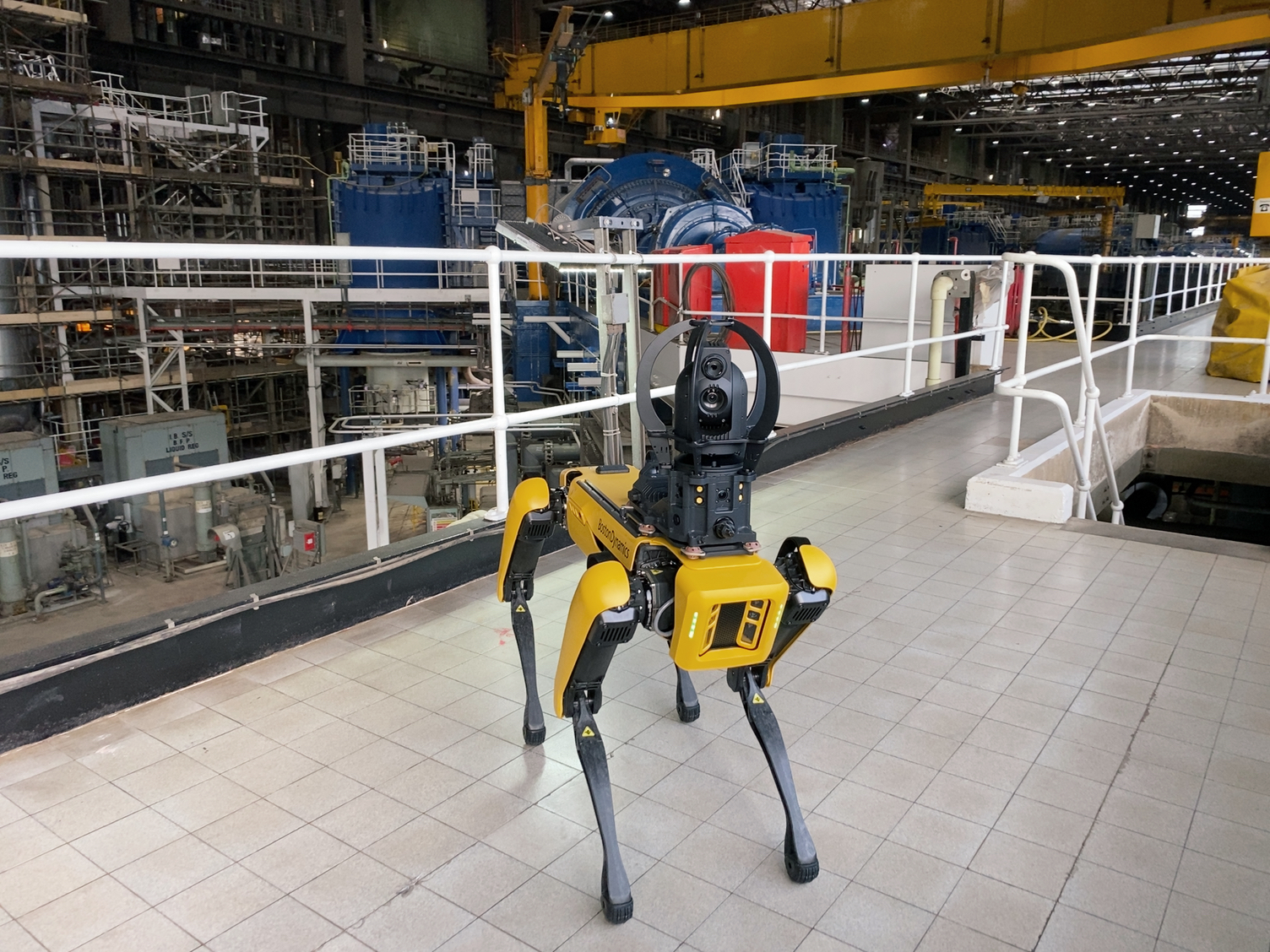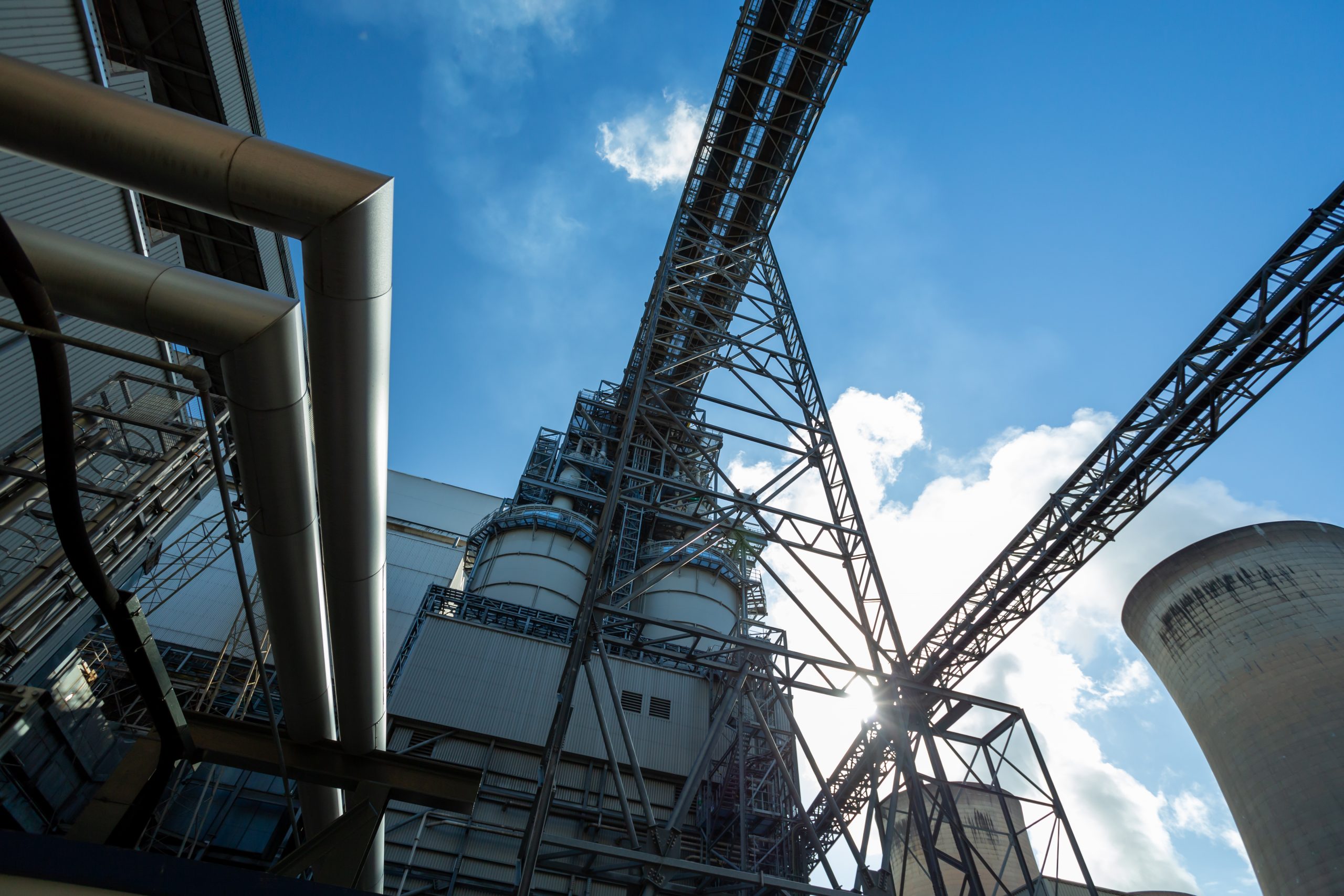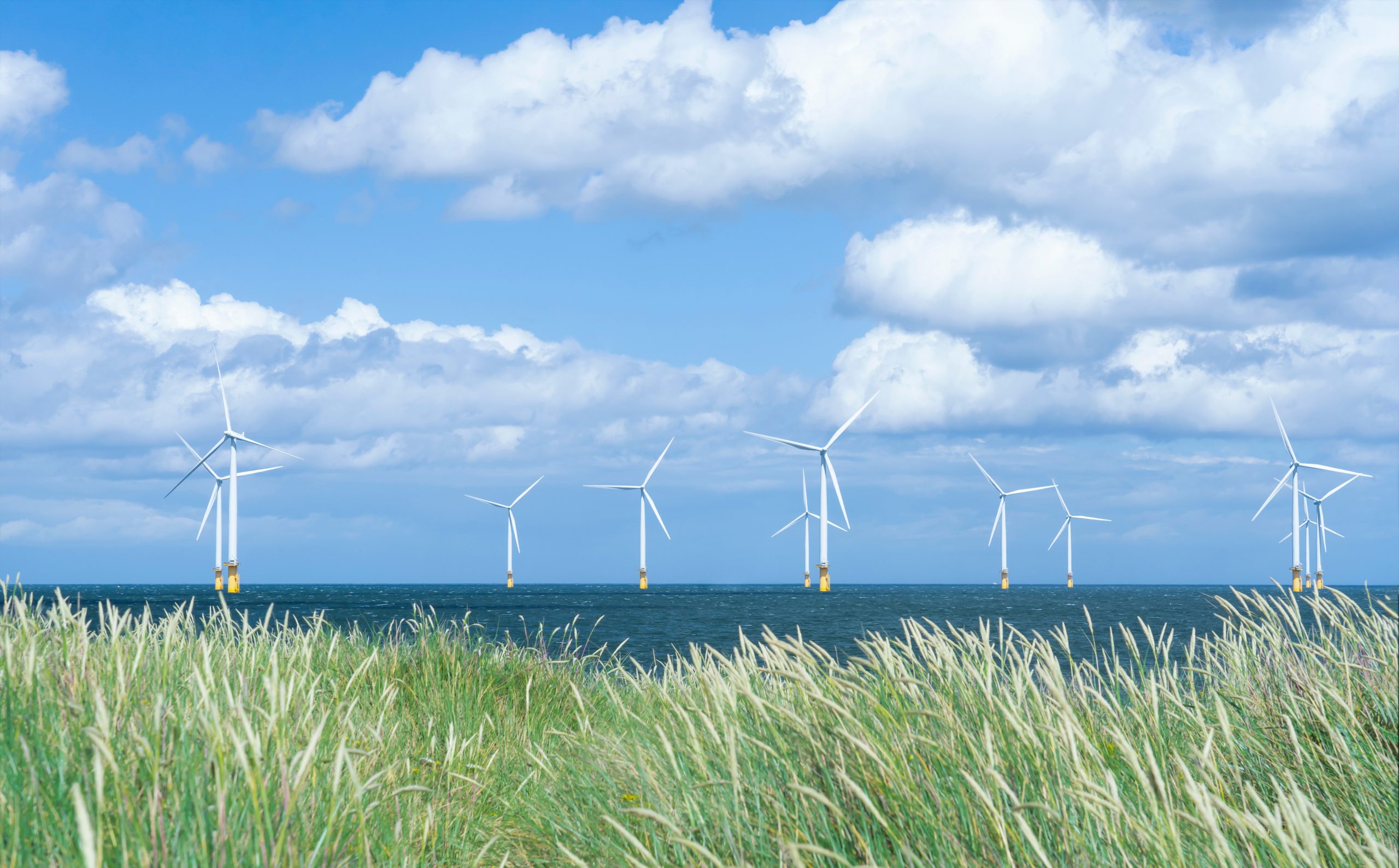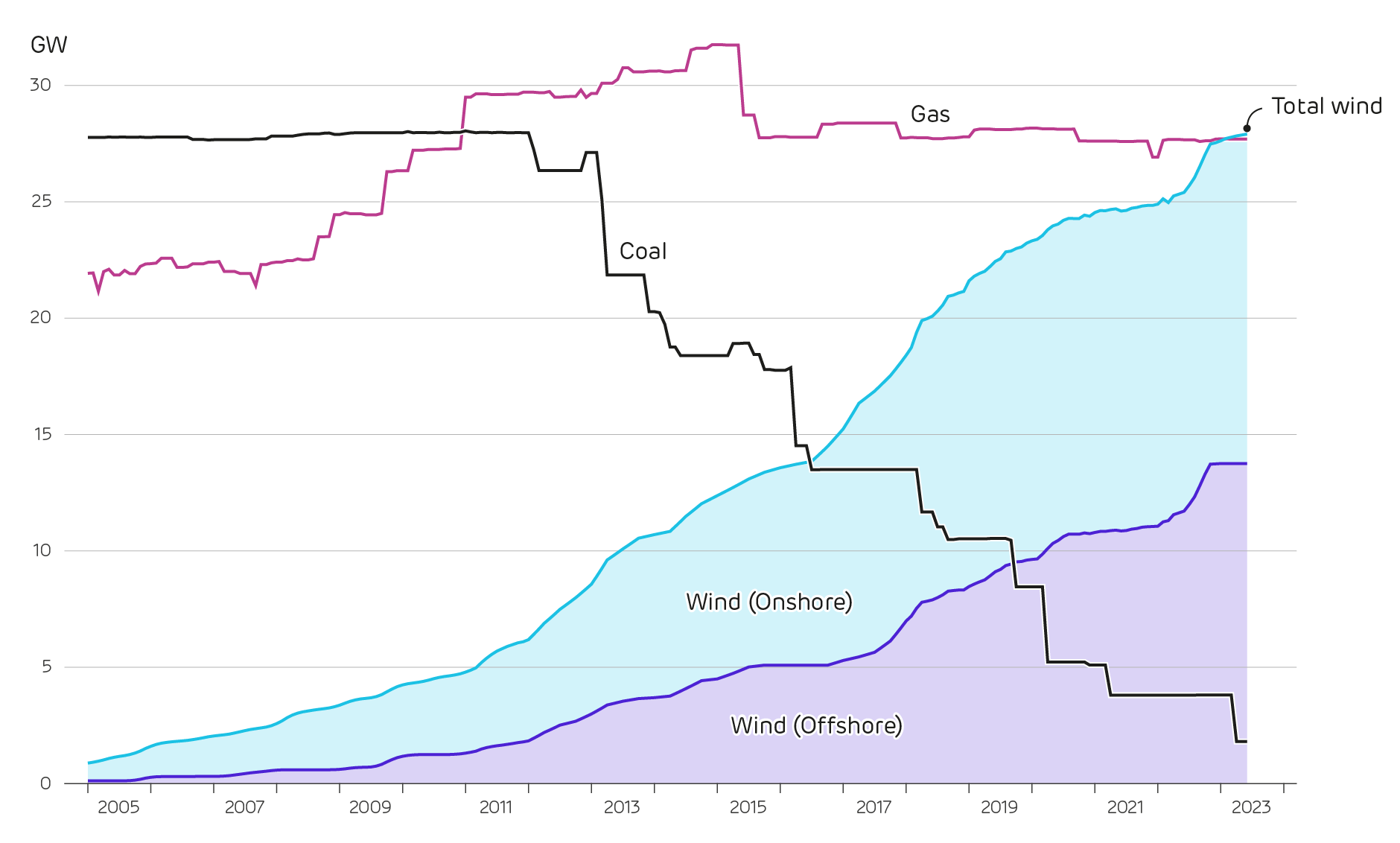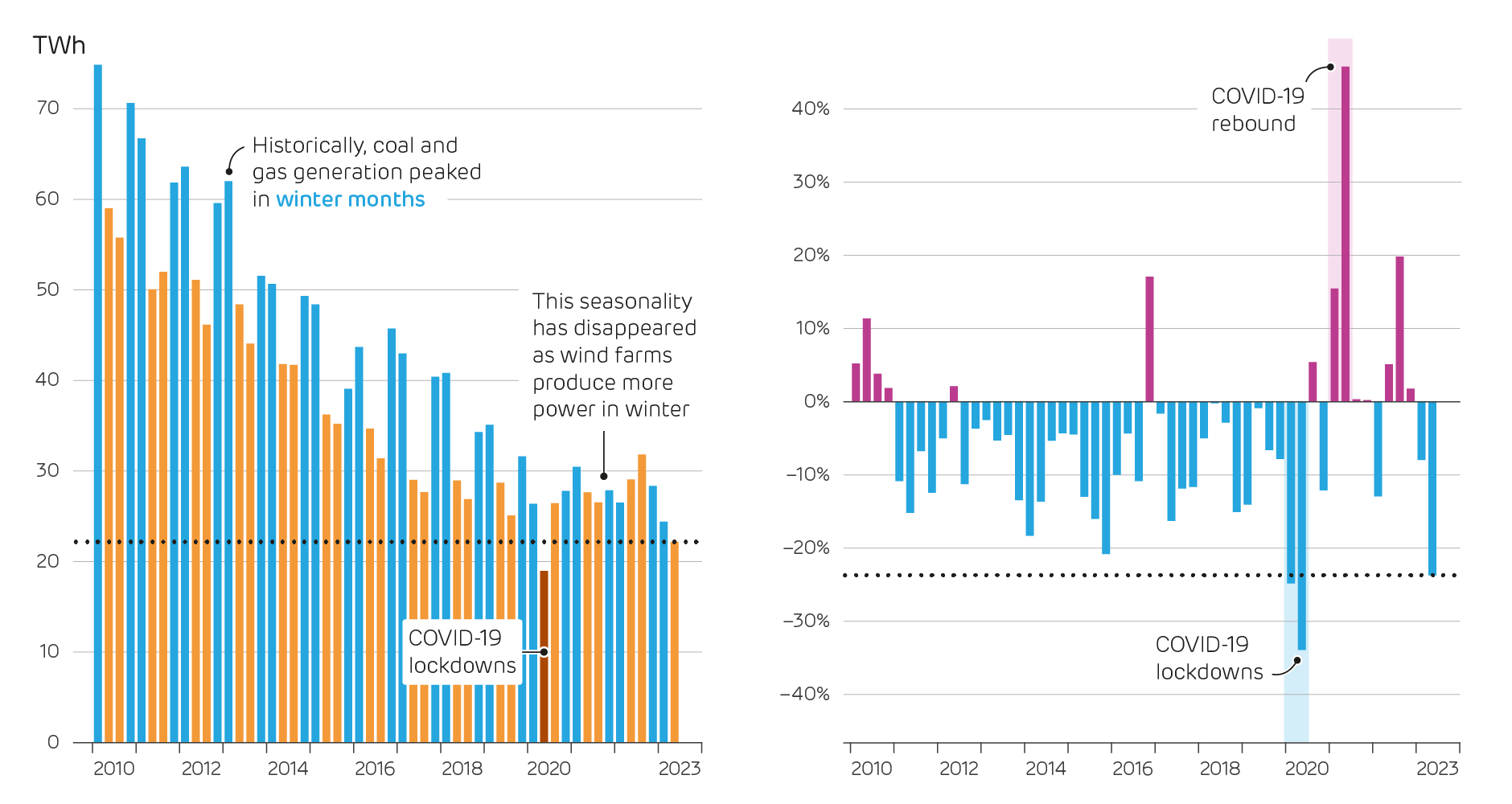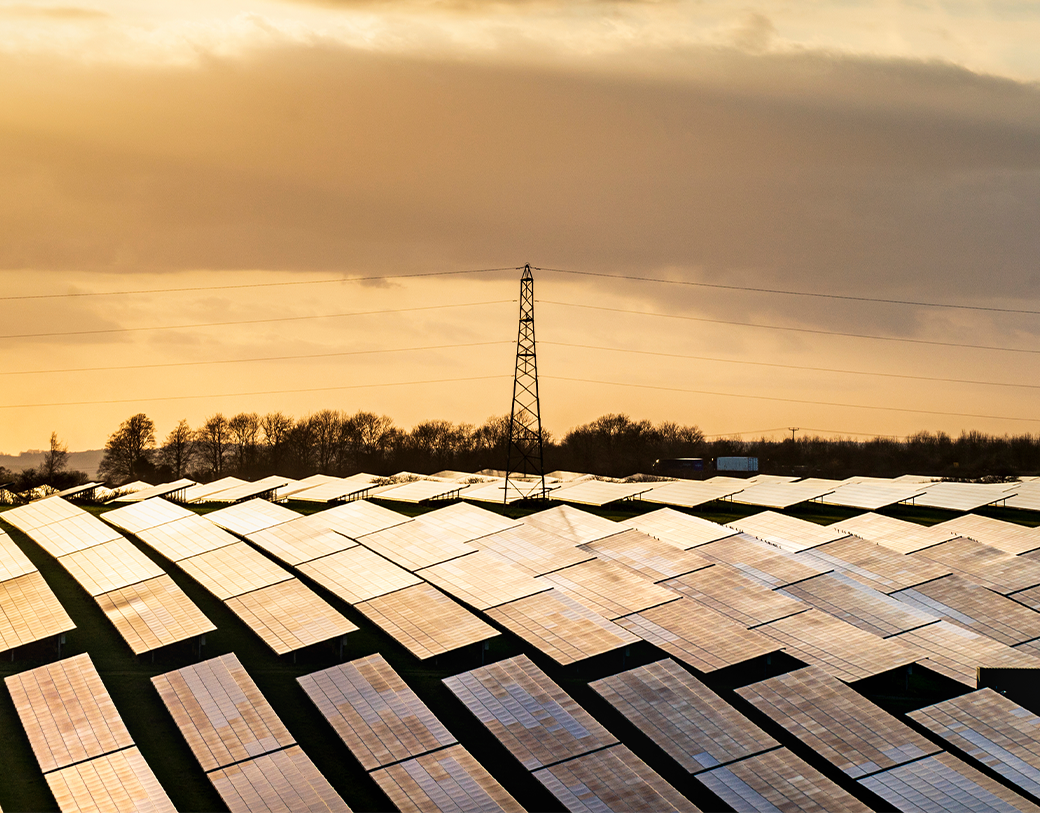
Renewables supplied more than 40% of Britain’s electricity demand, their highest share for the third quarter of the year on record. This made it the lowest carbon quarter on record, with emissions falling below 150 g/kWh for the first time ever.
Last quarter’s generation mix produced an average of just 143 grams of CO2 per kWh. This is the first time that the milestone of 150 g/kWh has been beaten over a quarter and comes more than three years since this record was last broken, during the COVID lockdowns of early 2020.
The findings are published during the COP28 climate conference in the United Arab Emirates and are part of the latest instalment of the quarterly Drax Electric Insights report. The publication is an independent report by academics from Imperial College London commissioned through Imperial Consultants.
Quarterly average carbon intensity of electricity generation over the last decade, log scale
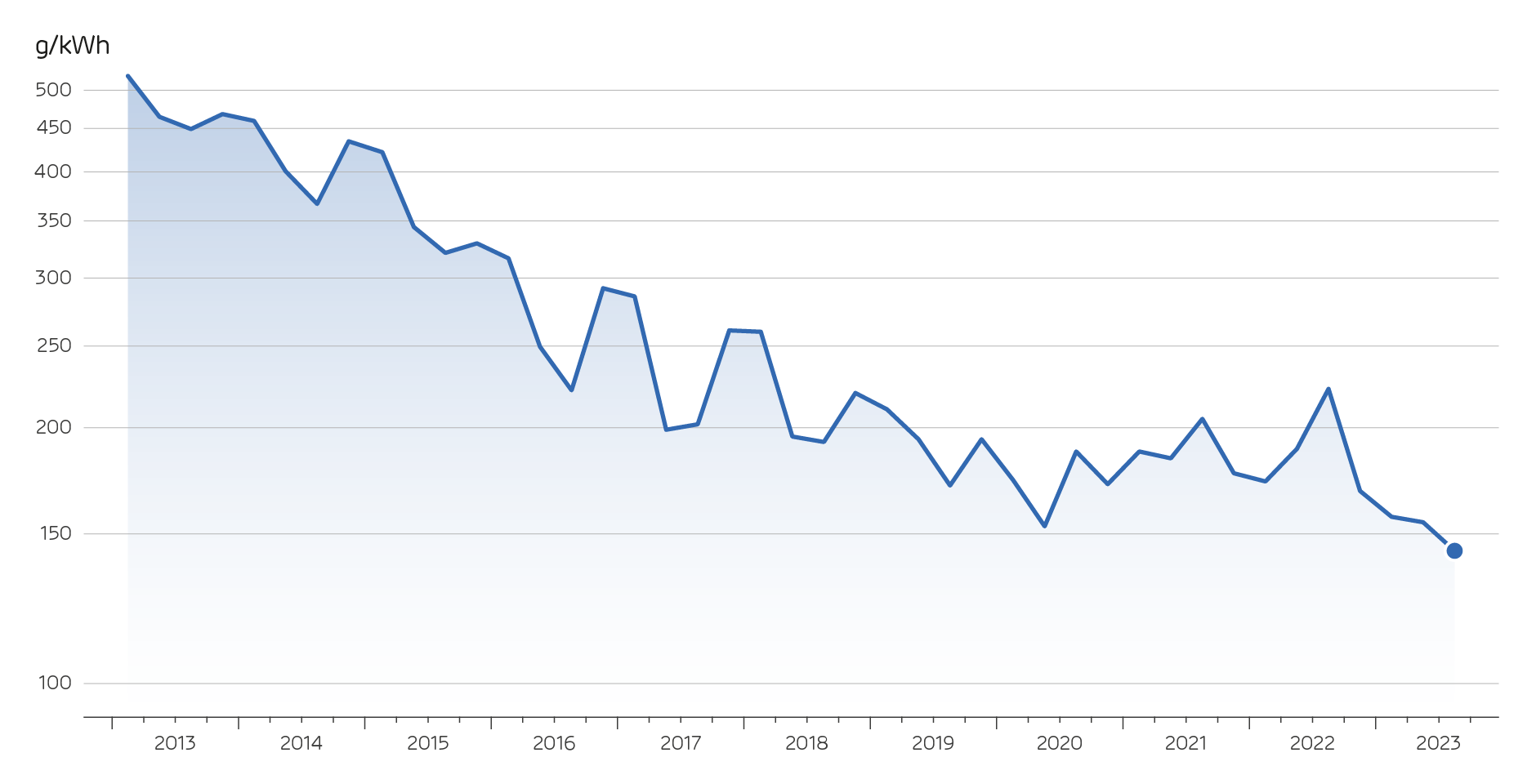
Dr Iain Staffell of Imperial College London, and lead author of the quarterly Drax Electric Insights report series, said:
“This is a milestone moment in the UK’s decarbonisation journey, getting our carbon emissions down by more than two-thirds in just a decade is a real achievement.
“With our renewable capacity continuing to grow, we should see more clean power records broken in the coming years. However, the long-term picture is more complicated, and it is vital that government continues to explore how to unlock investment in clean energy technologies.
“The rise in electric vehicles and heat pumps will push up electricity demand. We need to build more renewables of all types and kick-start negative emissions technologies, to not just keep pace with demand growth, but continue growing the share of clean energy and keep carbon emissions falling.”
One of the most striking illustrations of Britain’s changing power grid is the decline of coal. New analysis by Drax Electric Insights has found in the 12 months to October 2023, coal supplied less than 1% of Britain’s electricity for the first time ever. The country’s last remaining coal-fired power station will be retired next year as part of the Government’s commitment to end the use of the fuel in electricity production by October 2024.
The 12-month rolling average share of electricity demand met by coal in Britain and the world’s largest countries by GDP. International data from Ember
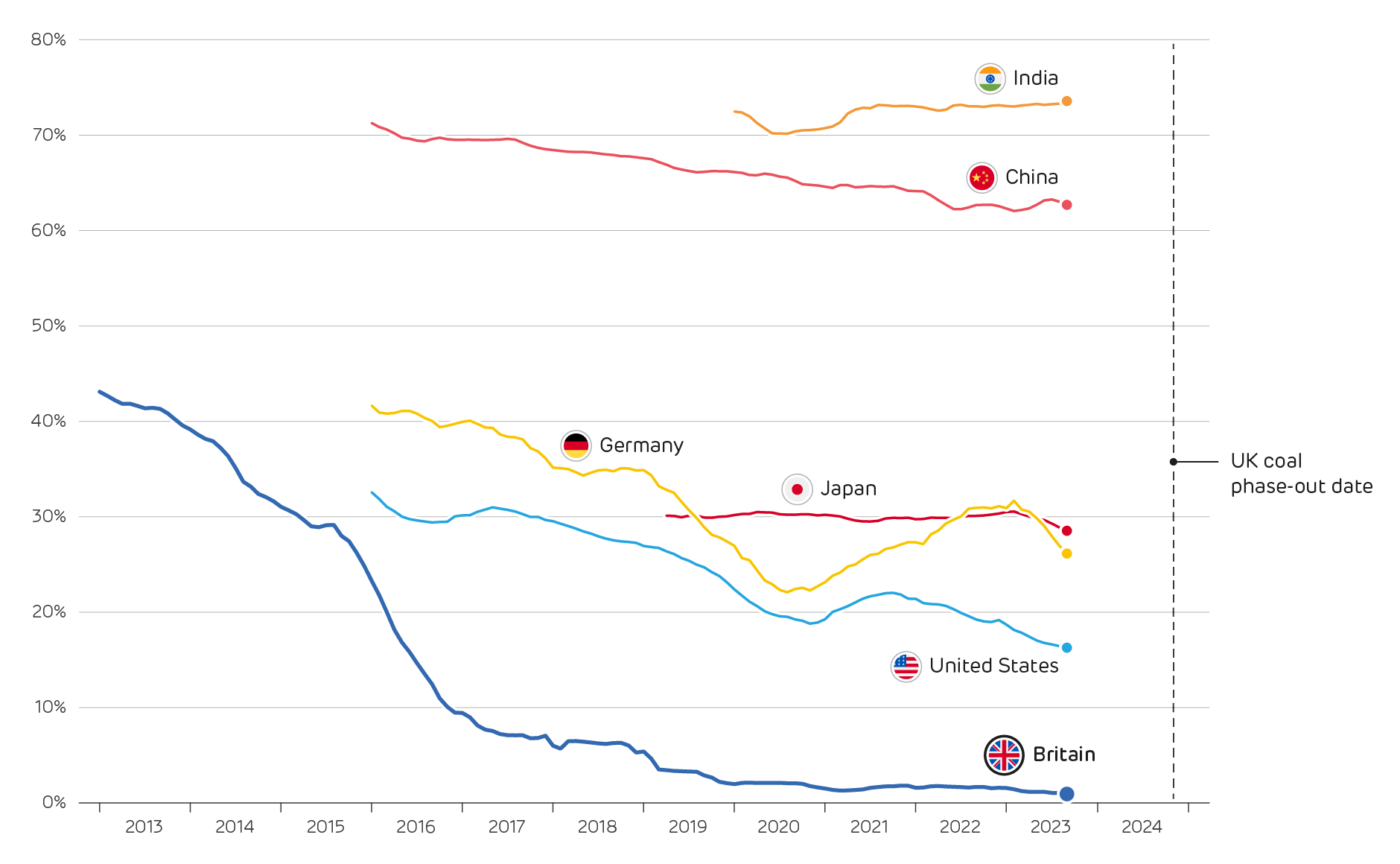
Britain’s move away from coal took shape over the last decade. A combination of air quality regulations, increasing carbon prices, and converting coal plants to run on biomass meant that Britain’s coal output fell by over 40% per year in the five years to 2020. In contrast, the share of electricity from coal has remained almost static in China, India, and Japan since 2015.
Around the world, 48 countries have committed to stop using coal for electricity over the coming decades. Efforts to expand the “phase-down” of coal failed at COP26 and 27, meaning extending this to become a global commitment remains a centre-stage issue at COP28 in the United Arab Emirates.
Penny Small, Drax’s Interim Chief Operations Officer, said:
“Getting coal off the grid and replacing it with renewables such as biomass has been transformational for the UK.
“By converting Drax Power Station to use biomass we have secured jobs and simultaneously strengthened the UK’s energy security through generating a reliable source of dispatchable, renewable electricity for millions of homes and businesses.
“We’re now planning to go further by using bioenergy with carbon capture and storage (BECCS) to permanently remove millions of tonnes of carbon dioxide from the atmosphere each year, and we are engaged in discussions with the UK Government to move this project forward.
“The global momentum for converting coal-fired power stations to biomass is growing as more countries work to reduce their emissions by moving away from fossil fuels to renewables while maintaining their energy security. If BECCS were eventually added to each of these sites, they would be able to remove carbon from the atmosphere while generating renewable power.”
ENDS
Media contacts:
Aidan Kerr, Senior Media Manager
E: aidan.kerr@drax.com
T: 07849090368
About Drax
Drax Group’s purpose is to enable a zero carbon, lower cost energy future and in 2019 announced a world-leading ambition to be carbon negative by 2030, using bioenergy with carbon capture and storage (BECCS) technology.
Drax’s around 3,000 employees operate across three principal areas of activity – electricity generation, electricity sales to business customers and compressed wood pellet production and supply to third parties. For more information visit www.drax.com
Power generation:
Drax owns and operates a portfolio of renewable electricity generation assets in England and Scotland. The assets include the UK’s largest power station, based at Selby, North Yorkshire, which supplies five percent of the country’s electricity needs.
Having converted Drax Power Station to use sustainable biomass instead of coal it has become the UK’s biggest renewable power generator and the largest decarbonisation project in Europe. It is also where Drax is piloting the groundbreaking negative emissions technology BECCS within its CCUS (Carbon Capture Utilisation and Storage) Incubation Area.
Its pumped storage, hydro and energy from waste assets in Scotland include Cruachan Power Station – a flexible pumped storage facility within the hollowed-out mountain Ben Cruachan.
The Group also aims to build on its BECCS innovation at Drax Power Station with a target to deliver 4 million tonnes of negative CO2 emissions each year from new-build BECCS outside of the UK by 2030 and is currently developing models for North American and European markets.
Pellet production and supply:
The Group has 19 operational pellet plants and developments with nameplate production capacity of around 5 million tonnes a year.
Drax is targeting 8 million tonnes of production capacity by 2030, which will require the development of over 3 million tonnes of new biomass pellet production capacity. The pellets are produced using materials sourced from sustainably managed working forests and are supplied to third party customers in Europe and Asia for the generation of renewable power.
Drax’s pellet plants supply biomass used at its own power station in North Yorkshire, England to generate flexible, renewable power for the UK’s homes and businesses, and also to customers in Europe and Asia.
Customers:
Drax supplies renewable electricity to UK businesses, offering a range of energy-related services including energy optimisation, as well as electric vehicle strategy and management.
To find out more go to the website www.energy.drax.com
View the full report here.














